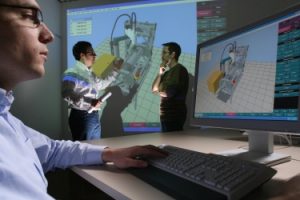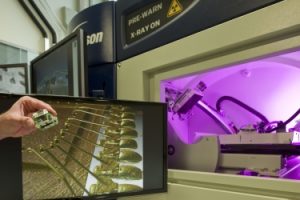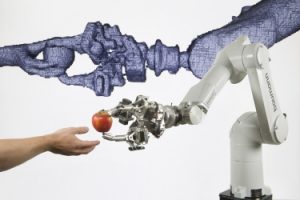Robotics is developing into a key technology for value creation, improved working conditions and support across all application domains in industry, the service sector, medicine and care, as well as in the private sphere. Wherever humans and autonomous technical systems should and want to cooperate, socially intelligent and adaptable interaction is crucial for pleasant, efficient and accepted collaboration between humans and machines. There is therefore enormous potential in the field of social robotics in particular, which will have a decisive influence on the success of robotic applications in the future.
The Bavarian Research Foundation is therefore funding a large research network FORSocialRobots on the topic of social robotics from 2024. In this project, many of the relevant Bavarian players from industry, application and research will jointly research important issues in social robotics and profitably transfer findings into a wide variety of robotic applications.
Unsolved challenges in the field of social robotics lie in the autonomous interaction of robots with humans and the design of goal-oriented and accepted holistic social communication and cooperation between robots and humans. It must be ensured that communication is as natural as possible and does not have a frightening effect on humans. The complexity of social interaction and communication also poses a challenge in terms of technical implementation. In addition to the currently limited technical functionality of the robots, further challenges currently lie in the high costs of adapting socially appropriate behavior in a wide variety of complex application scenarios.
The consortium’s vision in FORSocialRobos is for humans and robots to work together in flexible teams in all areas of daily life in a goal-oriented manner and for new robot applications to be realized in the shortest possible time. The FORSocialRobots project therefore aims to make a decisive contribution to improving the social capabilities of robots in six relevant fields of application of robotic applications (inspection, logistics, production, service, retirement home and dementia center) and in five scientific sub-projects (architecture of social capabilities, social situational communication, socially adaptive and proactive interaction, simulation and validation of socially cognitive robots in the digital twin and human-robot interaction in the work context), thereby increasing their effectiveness and acceptance among potential users and supporting completely new technical developments.
The project is scheduled to run for three years. The project consortium consists of research institutions, applied research institutions, companies and users, who together have the know-how to research robots physically and in terms of software, as well as to implement suitable use cases in an exemplary manner, taking into account ethical, legal and social implications (ELSI). Prof. Jörg Franke is the spokesperson for the research network and the Chair of Manufacturing Automation and Production Systems FAPS at Friedrich-Alexander-Universität Erlangen-Nürnberg, which he heads, is responsible for coordinating the network. Dr. Sebastian Reitelshöfer is also responsible for the sub-project architecture of social capabilities at the FAPS Chair. Other participating chairs and research institutes are the Processing Technology division of the Fraunhofer Institute for Casting, Composite and Processing Technology IGCV and the Smart Sensing and Electronics SSE division of the Fraunhofer Institute for Integrated Circuits IIS. Dr. Julia Berger from Fraunhofer IGCV is responsible for the social situational communication sub-project. At the Chair of Human-Centered Artificial Intelligence HCAI at the University of Augsburg, Prof. Dr. Elisabeth André is responsible for the socially adaptive and proactive interaction sub-project. At the Chair of Production Informatics PI at the University of Augsburg, Prof. Dr.-Ing. Johannes Schilp is responsible for the sub-project simulation and validation of socially cognitive robots in the digital twin. Prof. Dr. Cornelia Niessen is responsible for the sub-project Human-Robot Interaction in the work context at the Chair of Psychology in Working Life PiA at Friedrich-Alexander-Universität Erlangen-Nürnberg.
Contact:
Nina Merz, M. Sc.
Department of Mechanical Engineering
Institute for Factory Automation and Production Systems (FAPS, Prof. Franke)
- Phone number: +49 9131 85-27970
- Email: nina.merz@faps.fau.de
Dr.-Ing. Sebastian Reitelshöfer
Department of Mechanical Engineering
Institute for Factory Automation and Production Systems (FAPS, Prof. Franke)
- Phone number: +49 9131 85-27962
- Email: sebastian.reitelshoefer@faps.fau.de







